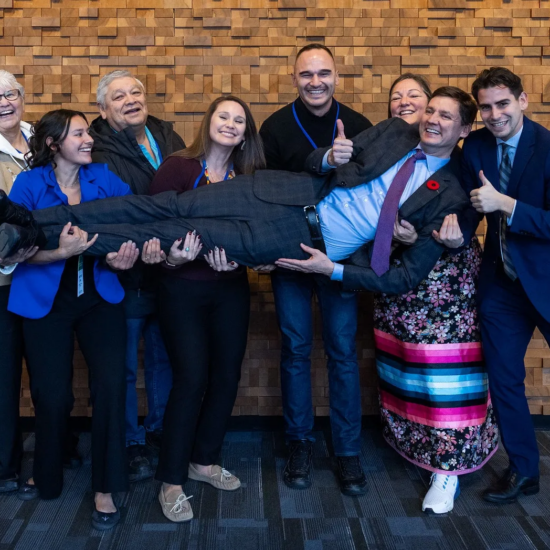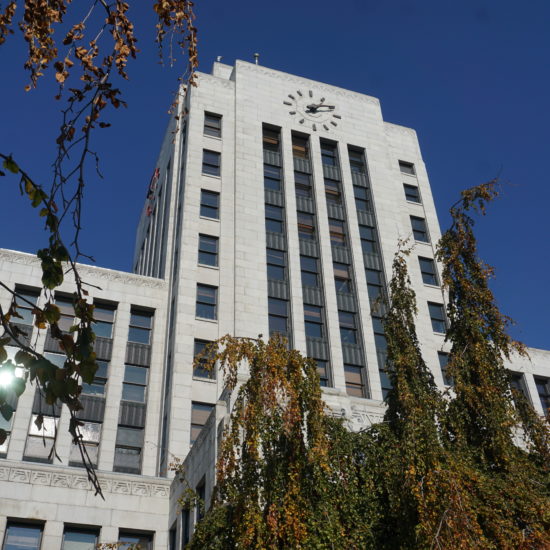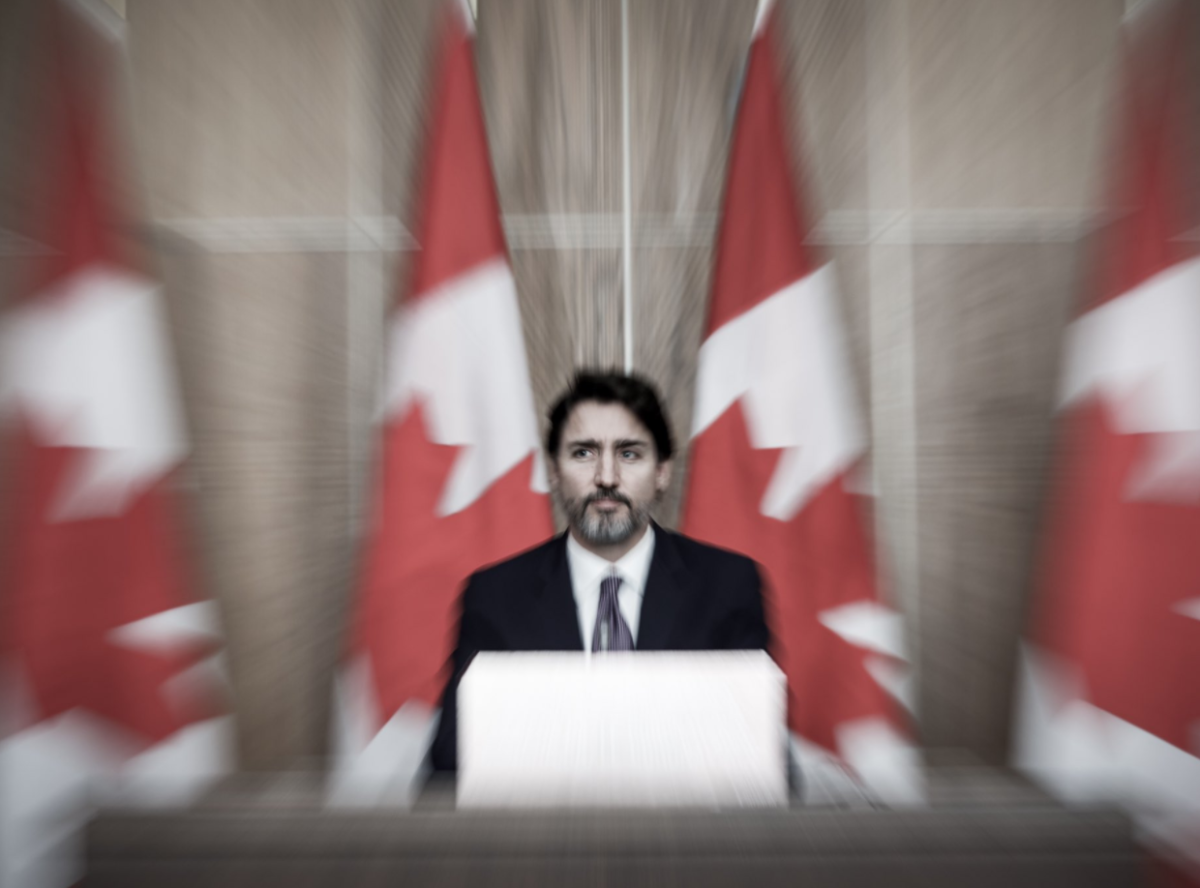
Bob Mackin
Canadians could be going to the polls as early as March.
An Elections Canada source, not authorized to speak on behalf of the agency, has told theBreaker.news that staff are being recruited and space for district electoral offices is being sought.
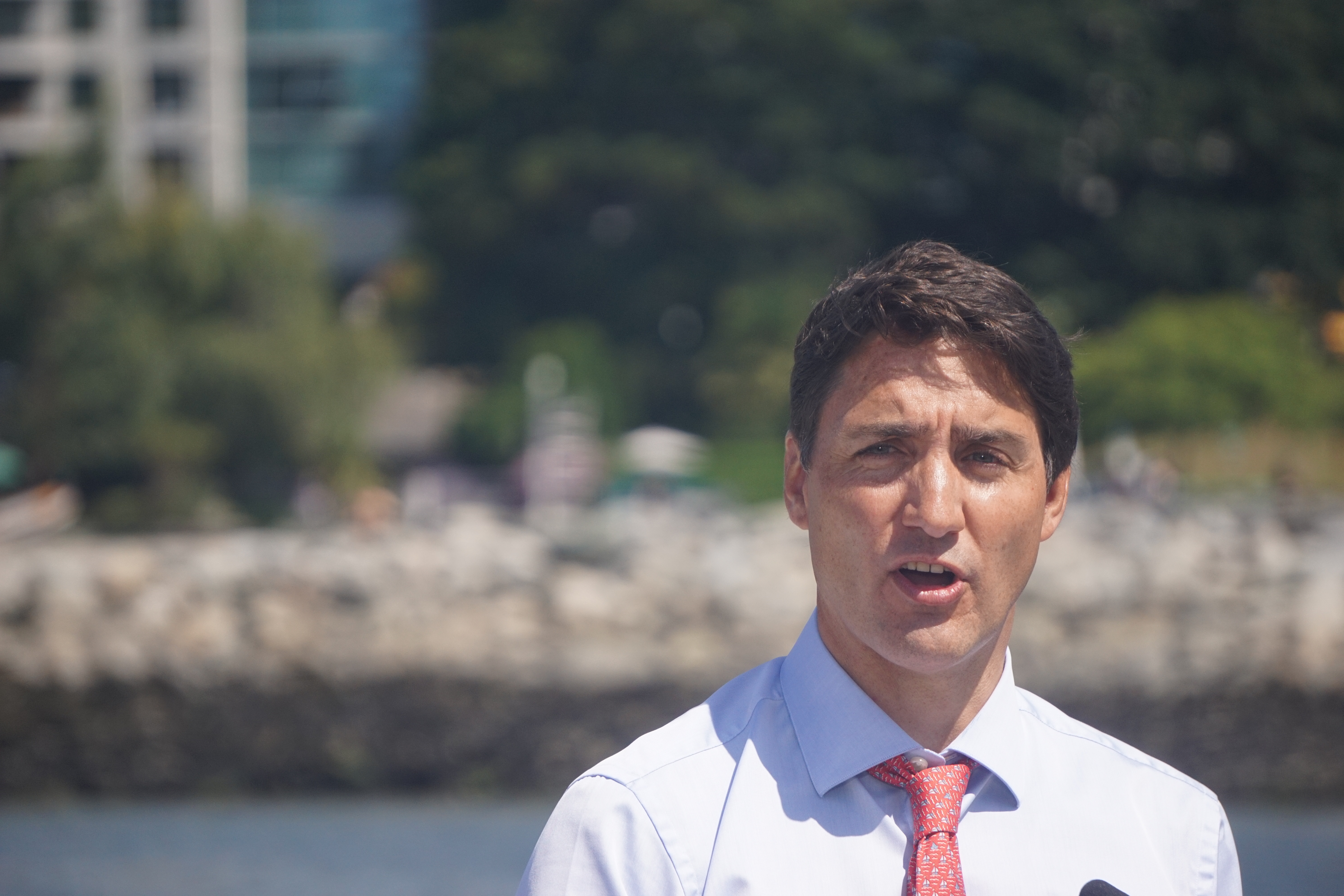
Justin Trudeau on July 29 at Kitsilano Coast Guard base (Mackin)
Elections Canada spokesperson Natasha Gauthier told theBreaker.news that the agency is targeting March 1 to be ready, should a snap election be called.
“That doesn’t mean we wouldn’t be able to deliver a safe, accessible election if one were called before that date,” Gauthier said. “But March 1 would be the date by which we would be able to optimally deploy all the planned updates to our processes.”
The next scheduled election is October 2023. Despite the fixed federal election date law, that does not prevent Prime Minister Justin Trudeau from calling an early election. An early election could also be triggered if the October 2019-elected minority government falls on a confidence vote. But Trudeau’s own government has admitted it will take until September for enough Canadians to be immunized to reach herd immunity.
Gauthier said returning officers are discussing space availability for offices and polling locations with local landlords.
“Lease terms can be negotiated ahead of time, but no leases can be signed until the writs are issued,” she said.
Canada’s chief electoral officer, Stephane Perrault, issued recommendations in early October for a pandemic election. Before Parliament recessed for the Christmas break, the Liberals tabled Bill C-19 for proposed amendments to the Elections Act. Instead of a single election day, there would be three. Plus a four-day advance poll the week prior. Elections Canada expects mail-in voting would top 5 million ballots. It was only 50,000 in 2019.
Throughout the fall, the House of Commons Procedure and House Affairs committee studied feasibility and logistics of a pandemic election. Hearings included testimony from Elections BC head Anton Boegman and Provincial Health Officer Dr. Bonnie Henry.
B.C. counted almost 600,000 votes by mail in the Oct. 24 provincial election. Turnout was 54.5%.
The NDP won a 57-seat majority in the election, which was held a year ahead of the legislated date. Democracy Watch and the founder of Integrity BC have petitioned B.C. Supreme Court to find Horgan and the NDP broke the law. The 2021 election was supposed to be the fifth consecutive since B.C. enacted Canada’s first fixed elections date law in 2001.
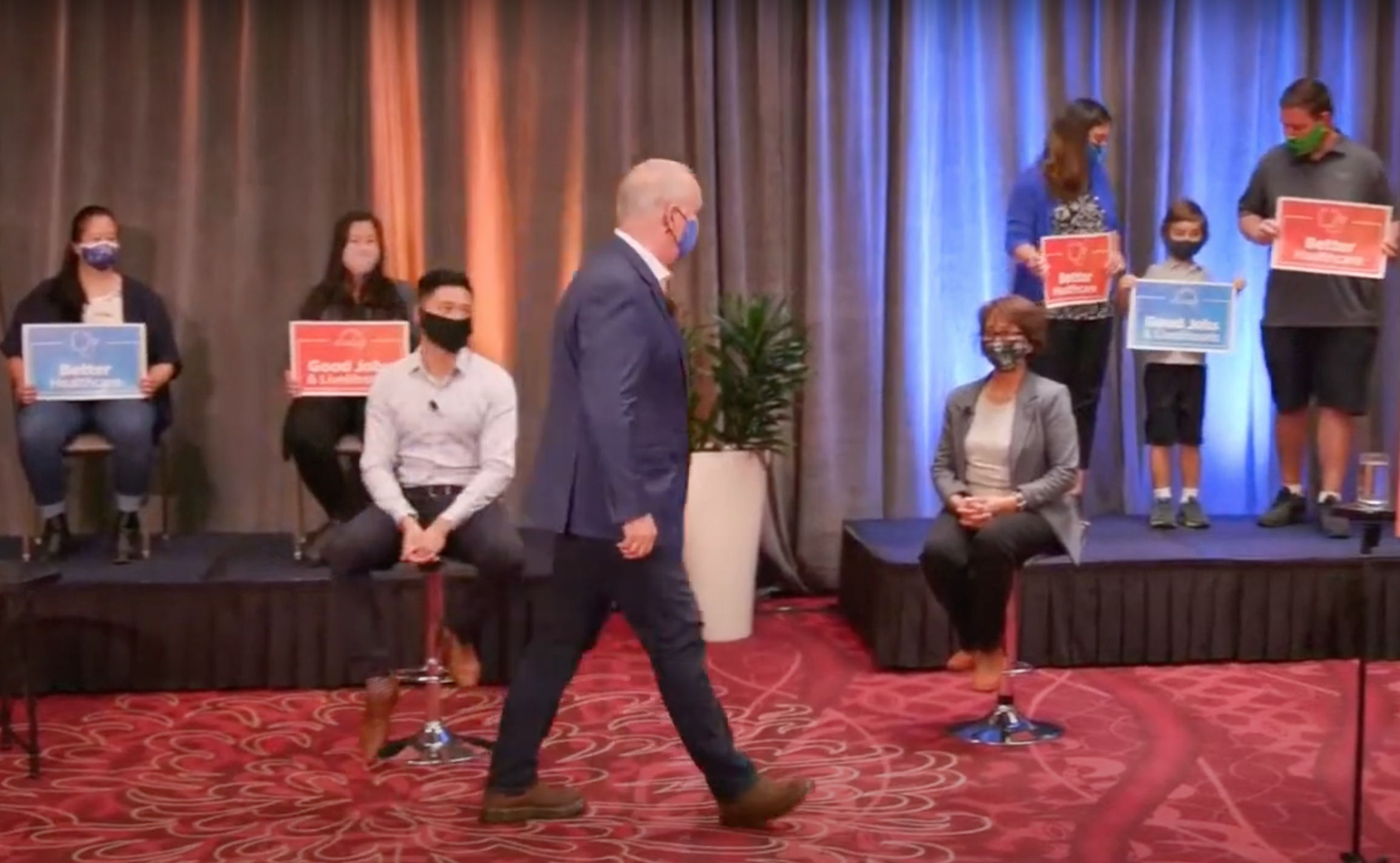
John Horgan at the Oct. 6 platform release (NDP/YouTube)
Between Sept. 21, the first day of the campaign, and Dec. 7, when the Legislature reopened, B.C. recorded almost 30,000 new cases of the virus and 300 deaths, increases of 365% and 132% respectively. The Fraser Health region drove the surge in cases. The biggest city in the region is Surrey, where the NDP won seven of nine ridings.
Andrew Wilkinson, who was the BC Liberal leader during the election, said incumbents had overwhelming advantages in B.C., Saskatchewan, New Brunswick and New Zealand.
He called the B.C. campaign a “low-information environment,” without events, crowds, personal touch or eye contact with voters.
“Just masks and once a day availabilities for the leader,” he said. “So it becomes a totally disembodied, sterile campaign where we’re all fighting against the control factor of Dr. Bonnie Henry.”
Support theBreaker.news for as low as $2 a month on Patreon. Find out how. Click here.







